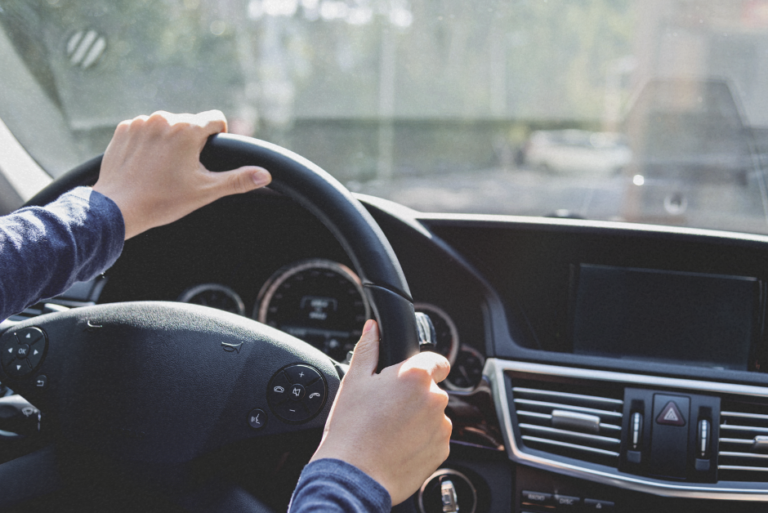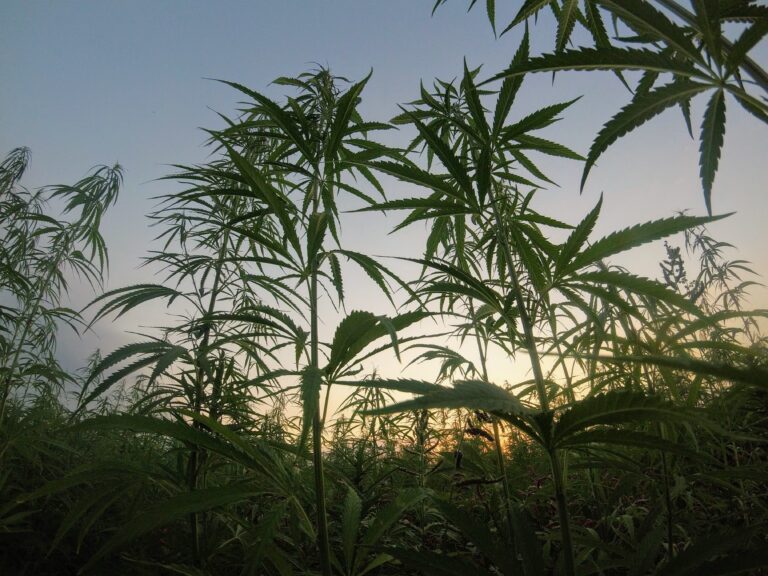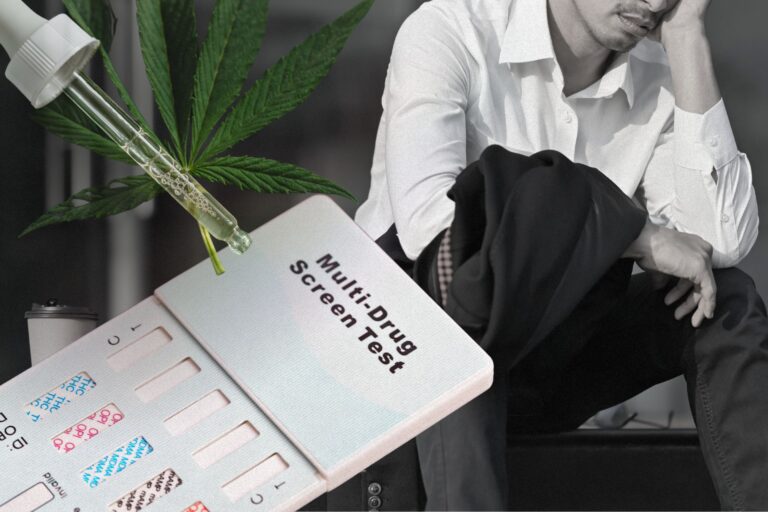8th of July 2024, 7:00am
FOR IMMEDIATE RELEASE
Tradies and parents prescribed medicinal cannabis have joined with MPs David Ettershank and Rachel Payne to campaign for fair driving laws.
They have united to advocate for a legal defence for unimpaired drivers prescribed medicinal cannabis who test positive to drugs to be in place when the government’s new $4.9 million med-can driving trial starts.
Mr Ettershank said the campaign to run through July will include:
- a public action day to inform the public about Victoria’s discriminatory drug tests, which do not screen for medications such as heavy-duty opiates but criminalise medicinal cannabis patients,
- a social media campaign featuring the testimonials of impacted drivers, and
- billboards on major roads.
“More than a million medicinal cannabis prescriptions have been issued in Australia. In Tasmania medical cannabis prescription holders have a legal defence and don’t lose their license if unimpaired but traces of cannabinoid chemicals are in their system,” he said.
“Victoria must introduce a legal defence while the Allan government’s new med-can driving trial is underway. The closed-circuit trial will run until mid-2026. With the state election due in November 2026, it just doesn’t leave the government enough time to formulate a policy and pass legislation. That means medical cannabis prescription holders will be left in legal limbo indefinitely.”
Medicinal cannabis driving debate to return to Victorian parliament
Ms Payne said Legalise Cannabis will debate its motion on medicinal cannabis driving laws and the need for a legal defence in the Upper House on July 31.
“Victorian Police carry out about 150,000 random roadside drug tests every year,” Ms Payne said. “These saliva tests do not determine whether a driver is impaired. Testing detects the presence of tetrahydrocannabinol (THC) chemical compounds in the body – often just small traces from medication consumed days before that have no impact on driving.
“Ordinary working Victorians are losing their licence even though they are taking their prescribed medication as directed by their doctor. There is nothing wrong with their driving. They shouldn’t be penalised because testing only shows presence.
“It’s a six-month loss of licence for a first offence, and a 12-month loss of license for a second offence. We will campaign hard in July to secure a legal defence for Victorian patients.”
Campaign supported by the Australian Lawyers Alliance
The Australian Lawyers Alliance is backing the call for a legal defence.
“Current drug driving laws lead to injustice and magistrates know this is the case, as do police and lawyers,” Australian Lawyers Alliance spokesperson Greg Barns SC said.
“They penalise people who use medicinal cannabis and who have no choice but to drive. Farmers and other residents of regional Victoria are particularly hard hit.
“The law is cruel. I have seen cases where people go back onto addictive opioids so they can drive and not lose their licence.”
The Victorians calling for reform
Will used to run a business driving trucks interstate. He owned one truck and was buying a second. He and his wife were also paying off the home they shared with their young son.
Will suffers from scoliosis, a hereditary spinal condition. He managed the pain with opiates which made him nauseous and interrupted his sleep. His GP suggested medicinal cannabis. It controlled the pain, had no side effects, and helped him sleep. Will was not tired behind the wheel – in fact he attributes his improved alertness on the road to taking medicinal cannabis. (A new study by the University of Colorado, Colorado State University and University of Haifa has found cannabis is associated with better sleep.)
During a drug test, Will tested positive for THC, while showing no signs of impairment. He lost his licence for six months and, with it, his livelihood. With no income he had to sell the trucks and his home. The family now lives in a rented property.
“We need to get past this ancient law and consider the benefits of medicinal cannabis,” he said. “The Victorian Parliament could learn a lot from Tasmania’s laws. Moving forward you need to prevent people like me from having to suffer.”
Watch Will’s story here.
Alice is a single mother who has stage-four endometriosis and Multiple Sclerosis. She tried an array of sleeping tablets and pain killers, including barbiturates and opiates, that reduced her appetite, interrupted her sleep and did not stop her tremors.
“I was very sick, cannabis saved my life. I can now maintain a healthy weight. I’m calmer for my kids and the severe tremor in my right hand is gone,” she said.
Alice never drives when she is impaired and believes medicinal cannabis has improved her driving. “Of course, I follow my doctor’s directions -a doctor is the expert to tell you how to take a medication,” she said.
But Alice is aware that if she stopped for a drug test, the THC in her system could be detected. She is asking the Allan government to change the law because many unwell people, who would benefit from the medication, are afraid to take it in case they test positive to drugs at a roadside stop.
“Despite the law, I keep taking medicinal cannabis because I don’t have a choice. My life before medicinal cannabis is not an option,” she said. “I am sure our premier would know someone with a terminal illness or autoimmune condition who would benefit from medicinal cannabis.”
Watch Alice’s story here.
Words of a person managing cancer: “I am a 39-year-old female terminal cancer patient who has used prescription cannabis for pain and nausea relief, daily, since 2022. I reside in Melbourne.
“I just wanted to raise one important point, on the topic of DUI testing for cannabis or THC.
I have been prescribed analgesic opioids, including hydromorphone for severe cancer-related pain. I prefer and choose to use prescribed THC cannabis for pain and nausea relief as this has less extreme side effects (including medication-induced anorexia and insomnia).
The laws in this country, and specifically Victoria, would allow me to use hydromorphone (which is undetected by any form of roadside testing) legally whilst driving.
“I would never do this and would never condone anyone using this opioid whilst driving. I just want to point out to you, that many cancer patients are able to get relief from pain and nausea through using THC products, but choose not to use those and instead opt for something like hydromorphone, due to the legal implications of roadside testing. It boggles my mind that the laws behind roadside testing remain this way.
“Thank you for reading the above. I really hope that common sense prevails one day and a legitimate testing regime for THC use becomes available in Victoria one day. Hopefully before I die!”
Brett (not his real name) is a tradie who daily chooses between living with awful pain or risking his licence.
In 2019, Brett was badly injured in a car accident, requiring hospitalisation for nearly six months, with 16 operations and more than three years in rehabilitation.
Brett was prescribed opiates for his pain that left him moody, irritable, tired and nauseous. Medicinal cannabis, however, allowed him to manage his pain without the side effects of opiates.
Brett never drives while impaired but knows that if he is screened at a roadside drug test, he could lose his licence and subsequently his income. He has tried to stop taking his medicinal cannabis, but when his injuries flare, he takes it just to cope with the pain. He says he is forced to choose between ‘a good day and a bad day’.
[ENDS]




